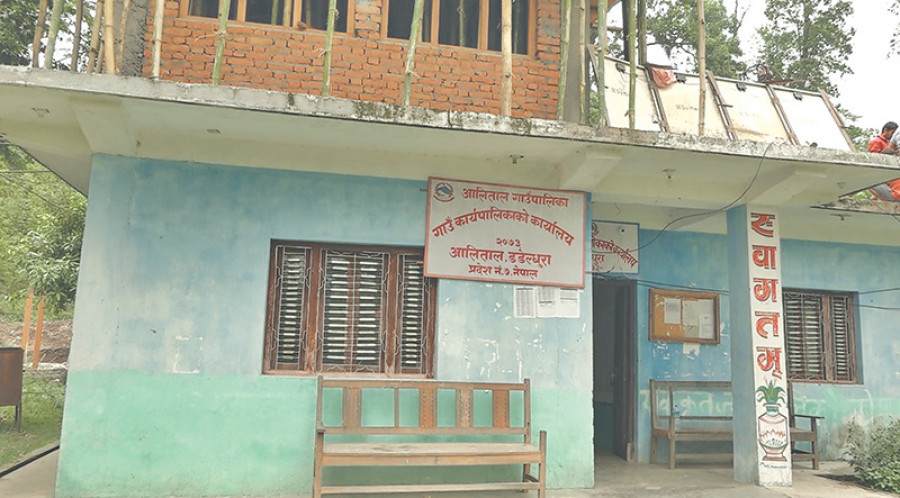Editorial
Local judicial committees lack the expertise to resolve disputes
As most of the office-bearers lack educational qualification and legal knowledge, this has become a major impediment for victims seeking justice.
Last year in February, it was reported that in the 18 months since judicial committees were formed to resolve disputes locally, not a single case had been lodged with any of Dadeldhura’s seven local units. In Baitadi, as few as 15 cases had been lodged with its 10 bodies. According to Baitadi Deputy Mayor Janaki Bam, who leads the judicial committee, they could not register any cases due to lack of staff, judicial bench and legal advisors. But one year later, it seems not much has changed.
Service-seekers in Baitadi district are increasingly dissatisfied with judicial committees. Faced with domestic violence, women resort to these committees in Sunarya Rural Municipality, Baitadi. Judicial committees are present in each of the 753 local level units. Its purpose is to ensure that justice is home-delivered. But in the absence of competent team members and resources, such promises have rung hollow. As a corollary, the residents of Baitadi too would rather seek justice via the police than opt for the judicial committee’s help.
A judicial committee comprises three members, including two elected by the members of the village assembly or municipal assembly from among themselves. Envisioned to be headed by the deputy mayor in municipalities and by the deputy chairperson in rural municipalities to decide specific disputes, these committees sounded promising initially. But three years down the line, they lack capacity and expertise, raising questions about their effectiveness.
The Local Government Operation Act 2017 states the functions and duties of the local judicial committee. It has been empowered to settle disputes related to 13 specific matters including property boundary disputes; disputes regarding canals, dams, ditches or allocation of water; encroachment on roads or way out; disputes about compensation for damage to crops; disputes about payment of wages; and disputes about lost and found cattle.
As most of the office-bearers lack educational qualification and legal knowledge, this has become a major impediment for victims seeking justice. Adjudicating disputes necessitates drawing a clear line between right and wrong, guilty and innocent, with reference to adduced evidences and provisions of the law. It is something that warrants proper training. But naturally, most of the deputy mayors and deputy chairpersons who head these committees do not come from a legal background. And that is why their response to complaints has been slow. But merely pointing to their ineffectiveness does not solve the problem.
To begin with, the committee members must be given at least some basic legal training. Since the problem has been identified, the focus now should be on solving it. Appointing legal advisors is another option. The right to justice and having access to justice are both equally important. Having judicial committees at all local levels is commendable, but their effectiveness will be measured via their ability to resolve disputes and deliver justice.
***
What do you think?
Dear reader, we’d like to hear from you. We regularly publish letters to the editor on contemporary issues or direct responses to something the Post has recently published. Please send your letters to [email protected] with "Letter to the Editor" in the subject line. Please include your name, location, and a contact address so one of our editors can reach out to you.




 16.12°C Kathmandu
16.12°C Kathmandu













